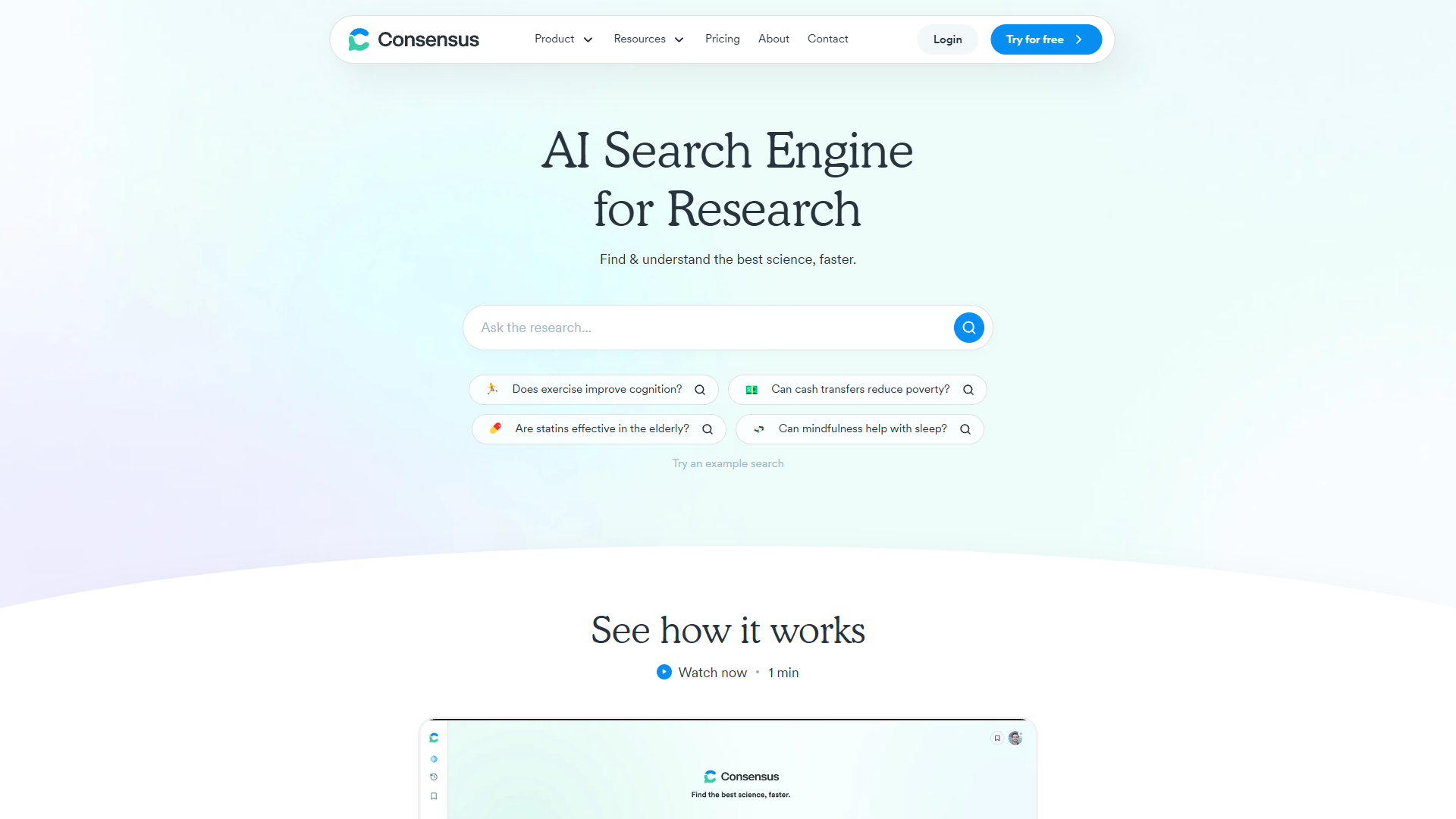Overview
Consensus is an innovative AI-powered academic search engine that provides researchers with seamless access to a massive collection of over 200M research papers. This tool is especially useful for those in academia or those seeking to streamline their research processes. The tool leverages AI technology to perform in-depth analyses, offering deep insights backed by credible research citations. This inherently boosts researchers' confidence that the data they rely on is accurate and reliable.
Apart from its core capability of delivering comprehensive search results, Consensus distinguishes itself by consistently citing research sources, ensuring transparency and trust in its responses. Though the tool offers a free plan for those wishing to explore its basic features, larger research teams and organizations can opt for premium plans that provide additional features and capabilities. Additionally, there's a customizable enterprise package that includes significant support for universities.
Overall, Consensus reduces the time researchers spend sifting through papers by offering relevant search results quickly and accurately. It is an excellent asset for individual researchers and organizations looking to expand their research capacity and effectively manage their resources.
Key features
- AI-powered searches: Consensus uses advanced AI technology to offer precise academic searches, ensuring researchers can find relevant papers effectively and efficiently without spending excessive time on manual searches.
- Comprehensive paper database: With access to over 200 million research papers, Consensus provides users with an expansive range of academic material, accommodating a wide variety of research needs.
- Credible research citations: Every answer provided by Consensus is backed by proper citations, fostering trust and transparency in the information generated by the platform.
- Customizable enterprise plans: Consensus offers flexible enterprise solutions tailored for large institutions, providing benefits like integration with existing libraries and dedicated support for seamless research experiences.
- Unlimited premium access: For those on premium plans, unrestricted access to advanced tools and updates ensures researchers can maximize their efficiency without being bound by limitations.
 Pros
Pros
- Fast academic research: Consensus significantly reduces the amount of time required to perform academic research, making it much easier for researchers to gather critical information swiftly.
- User-friendly interface: The platform is designed with user experience in mind, presenting an easy navigation system that accommodates researchers of all proficiency levels.
- Reliable resource integration: Consensus wisely integrates with various existing research tools, allowing users to maintain their current workflow with added AI capabilities seamlessly.
- Scalable for teams: The tool allows researchers to easily scale their operations by adding team members or integrating into larger organizational research frameworks.
- Flexible usage options: The plan options allow users to select according to their need, providing both free and premium services for different levels of research.
 Cons
Cons
- Limited free features: The free version of Consensus offers capped access to certain functionalities which might not be sufficient for heavy users or large-scale research projects.
- Requires subscription for premium: Users seeking unlimited access and additional advanced features must subscribe to the premium plans, which might be a barrier for budget-conscious researchers.
- Learning curve present: Like many specialized tools, new users might experience a learning curve in utilizing the platform's full potential and features effectively.
- Feature incognizance: Potential users may be unaware of less prominent features that could enhance their research methods substantially without guidance or exploration.
- Occasional data overload: The vast availability of information might be overwhelming for some users, necessitating cautious filtration and selection processes to maintain focus.

















